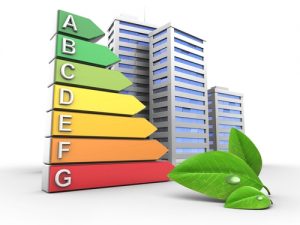
U.S. Sen. John Hoeven (R-ND) this week sponsored bipartisan legislation to provide more flexibility in fuel sources used by the federal government to make its buildings more energy efficient.
“Our bill is a win-win for reducing costs and improving environmental stewardship,” said Sen. Hoeven, who serves on the U.S. Senate Energy and Natural Resources Committee. “Burdensome one-size-fits-all rules aren’t realistic or cost-effective ways to improve energy efficiency.”
Sen. Hoeven on April 30 reintroduced the All-of-the-Above Federal Building Energy Conservation Act, S. 1245, with U.S. Sen. Joe Manchin (D-WV). Sen. Hoeven also introduced the bill during prior congressional sessions to help the federal government improve energy efficiency via flexibility in using efficient fuels like natural gas.
“Our bill takes a common sense approach and provides federal building managers flexibility in sourcing energy so they can reduce energy consumption and cut down on costs,” Sen. Hoeven said on Tuesday.
If enacted, S. 1245 would repeal Section 433 in the Energy Independence and Security Act of 2007 that includes a rule to eliminate all fossil fuel-generated energy from all new or renovated federal buildings by 2030, among several other provisions.
S. 1245 already has the support of numerous organizations and companies, including Lockheed Martin, the Edison Electric Institute, the American Public Gas Association, the Alliance to Save Energy, the American Gas Association, the Fuel Cell and Hydrogen Energy Association, the American Public Power Association, and Johnson Controls Inc., among others.
The measure is under consideration by the Senate Energy and Natural Resources Committee.



